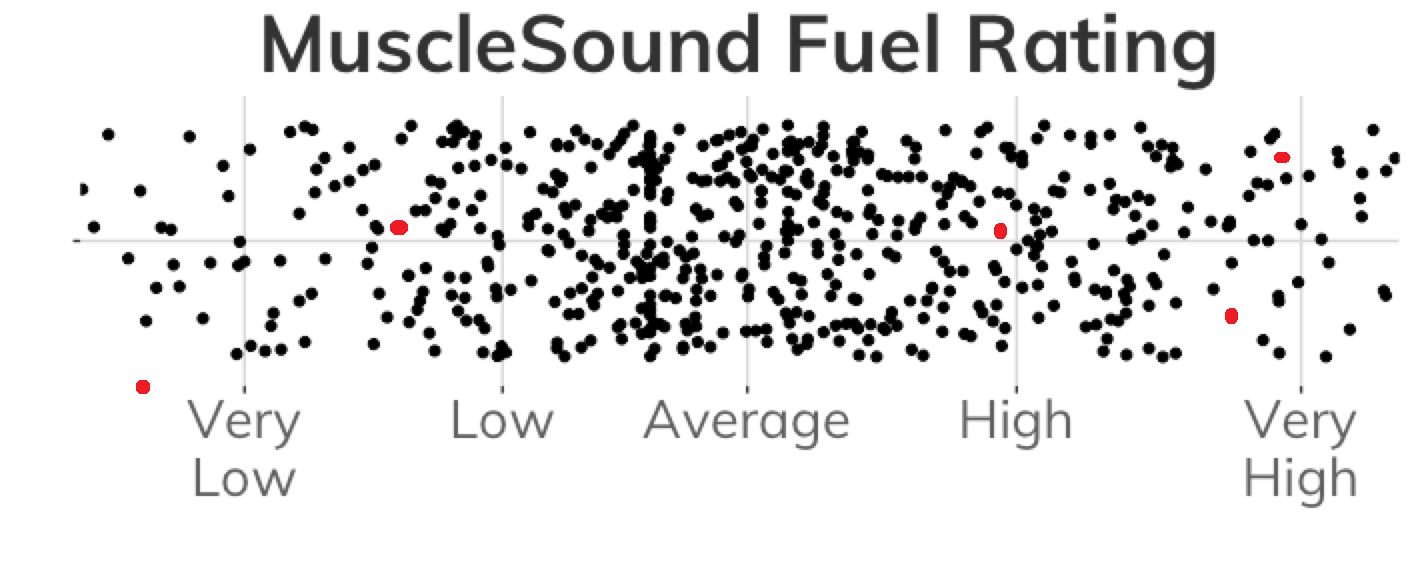Our new scoring system comes with a new set of terms. Muscle Fuel Rating (MFR) is one of two elements (together with Estimated Fuel Level) that make up what we call Muscle Energy Status (MES).
Overview
The ability to compare (rate) an individual’s Muscle Fuel score with thousands of others is a valuable asset to those in the medical, fitness, and wellness fields. Prior to MuscleSound, this kind of measure had not been available outside an epidemiological research setting.
Definition
Muscle Fuel Rating (MFR) is the comparison of an individual’s Muscle Fuel score with the fuel scores of thousands of individuals in our MuscleSound database.
Example
The illustration above displays a small sample of MuscleSound scores for the Rectus Femoris (RF). Each dot represents an RF score for an individual muscle scan. The scores vary across a wide range of values – from ‘Very Low’ to ‘Very High’. This is because the scans have been taken with different people, at different times, and across a wide range of situations. The red dots indicate various types of individuals – ranging from ICU patients, recent surgery patients (Very Low) to professional athletes (Very High).
How do we obtain MFR scores?
- The median value is calculated of all MuscleSound scores for a particular muscle, taken over the previous 30 days
- In the same way as the ‘red dot’ examples above, this median value is then rated against all scores in our MuscleSound database for the same muscle
- The MFR score is displayed in our scan reports along a 5-point scale, as illustrated below
MFR is a ‘Trait’ measure – a score that reflects how a muscle has responded to behaviors (traits) over time. Trait measures are not dynamic and change only in response to longer-term behaviors, actions or events (e.g. vacations, injuries)
Why is MFR important?
- It tracks the effect of changes in the muscle such as injury or overtraining
- It reflects the long-term effects, such as injury or overtraining
- It is a motivational and/or goal-oriented tool as it shows how well a muscle could score
- It identifies trends so that an individual can know if they are improving over time
- It answers a critical question “How do I rate compared to others like me?”
Take Home Message: MFR provides non-invasive, easily acquired historical, comparative data on Muscle Fuel – an important aspect of muscle health. This is information that will allow better decisions to be made relating to the potential for a muscle to improve its status over time.
In Practice
Read this great case story to understand how MFR looks and is used in practice.


